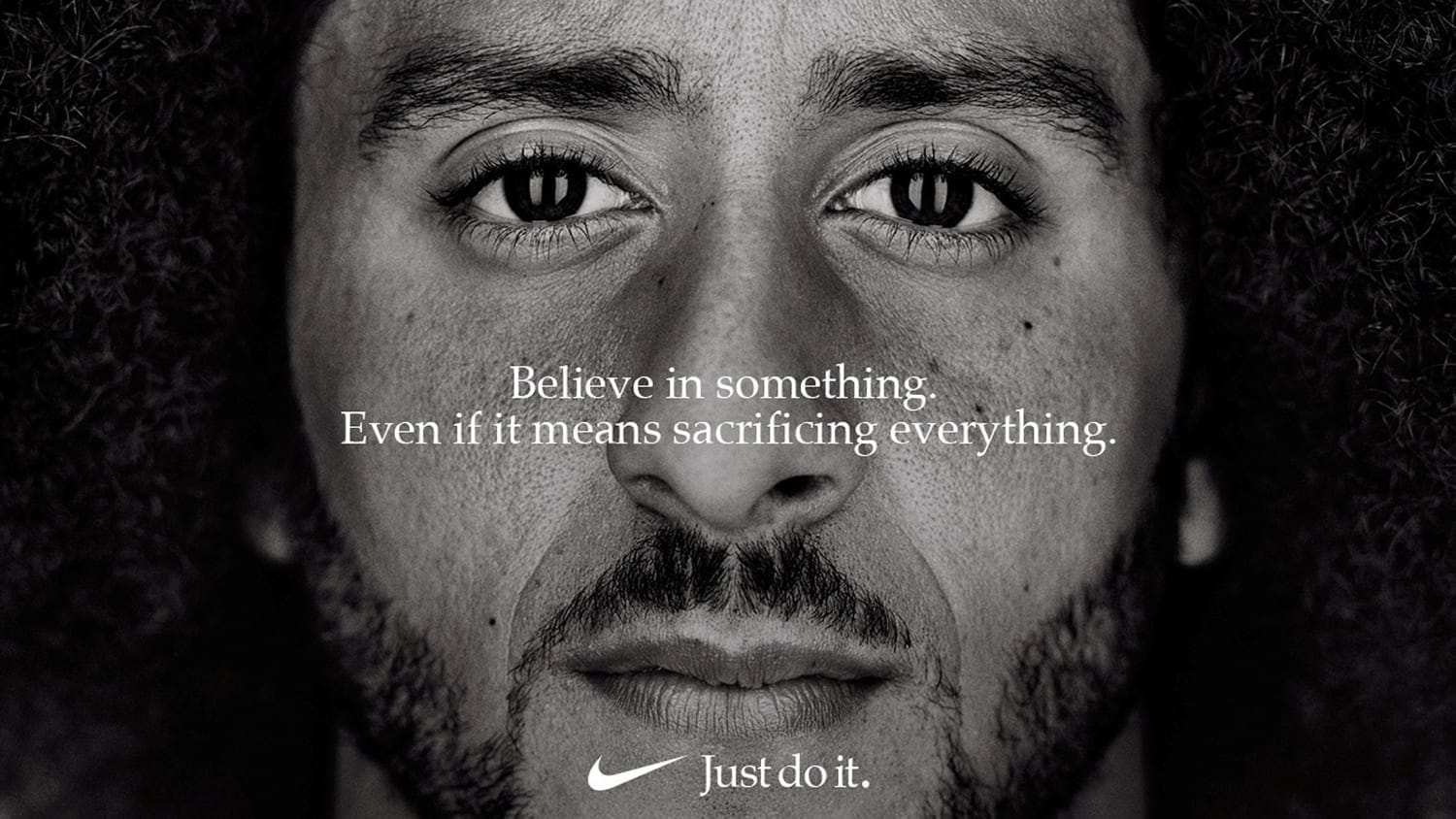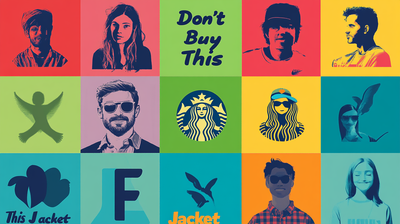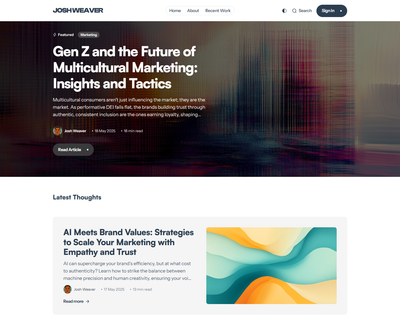Imagine a generation that doesn’t just span continents but defies the traditional maps marketers have relied on for decades. Gen Z, with its tapestry of identities and digital fluency, is reshaping the very landscape of consumer engagement, making multicultural marketing not just a trend but an imperative. They’re more plugged in, more aware, and more diverse than any cohort before them, challenging brands to authentically engage in ways that resonate with their multifaceted identities.
Multicultural marketing has evolved beyond surface-level demographic segmentation to become a strategic cornerstone for businesses seeking to thrive in today’s globalized world. It's not just about acknowledging the diversity that exists; it’s about leveraging that diversity to form genuine connections, bolster brand loyalty, and unlock new revenue streams. Brands that understand the core principles of this approach, including embracing digital platforms and data-driven strategies, are primed to meet the demands of diverse audiences whose purchasing power is continually growing.
This article delves into the strategic importance of multicultural marketing for engaging Gen Z, drawing on insights that challenge outdated paradigms and outline actionable tactics. We’ll explore the critical role of cultural competence, the power of authentic storytelling, and the precision needed to balance scalability in campaigns, all while steering clear of the challenges like cultural appropriation. Through case studies and analysis of future trends, we’ll chart a comprehensive course for businesses to authentically connect with this dynamic generation in an increasingly multicultural world.

The Importance and Strategies of Multicultural Marketing
Multicultural marketing is essential for businesses aiming to stay competitive. This approach goes beyond simple language translation or diverse imagery. It requires a deep understanding and celebration of different cultural backgrounds to create authentic connections with consumers.
Key Strategies:
- Cultural Insights: Leverage data to truly understand cultural nuances, preferences, and values.
- Resonant Content: Create content that reflects and respects the life experiences of multicultural audiences.
- Collaboration with Influencers: Partner with ethnic micro-influencers to tap into specific audiences and benefit from authentic word-of-mouth endorsements.
- Continuous Optimization: Consistently collect data and refine strategies to enhance outreach and engagement.
Benefits:
- Expands market reach by connecting with underserved audiences.
- Builds deeper connections by recognizing diverse cultural identities.
- Reinforces customer loyalty by appeal to customers deeper sense of meaning and purpose.
Sprout Social’s 2023 research makes the business case for inclusive marketing undeniable. According to their Pulse Survey, 66% of consumers are more likely to buy from brands that showcase diversity across race, gender identity, age, and more. Gen Z, the most racially and ethnically diverse generation to date, is particularly attuned to this, with 27% saying they trust brands more when they see themselves represented in ads.
But the expectation goes beyond representation: 40% of consumers will unfollow a brand if its values don’t align with their own. As the report highlights, inclusive marketing can’t be confined to heritage months or performative hashtags—it must be part of a brand’s long-term, inside-out strategy. From representation in social content and creator partnerships to DEI-driven internal practices, today’s consumers are holding brands accountable for how they show up, not just what they say.
By integrating these strategies, businesses position themselves to engage effectively with Gen Z and multicultural consumers, ensuring authenticity and fostering meaningful connections across diverse segments.

Understanding Multicultural Marketing
Today, multicultural marketing stands out as an essential strategy for businesses seeking to connect authentically across diverse cultural spectra. This approach isn't just a trend—it’s a business imperative that calls for engaging with multicultural audiences at their core. Multicultural marketing emphasizes creating culturally informed strategies that reject lazy stereotypes and resonate with the values, nuances, and preferences specific to diverse consumer segments. Brands that excel in this space do more than talk the talk; they walk it, taking meaningful steps to understand, respect, and celebrate cultural differences through their campaigns. Music, language, traditions, and storytelling all come into play, requiring brands to refine their messages and media channels continuously.
Definition and Core Principles
At its core, multicultural marketing is the art and science of crafting marketing strategies and content that engage distinct cultures and backgrounds outside the traditional consumer market. This approach requires a combination of deep cultural intelligence and strategic creativity. Unlike one-size-fits-all strategies, successful multicultural marketing demands an omni-channel approach, ensuring that brand messages resonate strongly across various cultural touchpoints. Essential to this process is the principle of respect—acknowledging and honoring the multifaceted identities of the target audience, which span ethnicities, genders, sexual identities, and more. It is not merely about inclusion but about genuine engagement, requiring marketers to engage with authentic representations and voices.
Engaging in this kind of marketing is not a one-and-done activity. It demands ongoing dialogue and learning, anchored in a commitment to authentically reflect diverse voices in every campaign. Brands that prioritize cultural fluency over performative efforts will find themselves better positioned to forge deeper, more meaningful connections. This inclusive marketing strategy is not just good practice; it's good business, expanding reach and enhancing relationships within a multicultural consumer base.
The Rise of Diverse Audiences
The demographics of global audiences are shifting rapidly, rendering the notion of a monolithic general market increasingly irrelevant. This evolution is especially apparent in younger generations, such as Gen Z, where over 48 percent presently identify as non-white in the United States alone. This demographic presents an untapped opportunity for marketers, wielding both significant spending power and cultural influence that brands can no longer afford to ignore. By moving beyond traditional binary market classifications, multicultural marketing strategies capture a broader spectrum, focusing on cultural affinity and shared interests.
Success with diverse audiences hinges on a brand's ability to see beyond surface-level engagement, delving into the cultural and socio-economic roots that define individual consumer experiences. Brands must navigate these spaces with care, precision, and a commitment to avoiding stereotypes. This shift towards culturally inclusive strategies enables companies to present a unified brand image that resonates with various segments. As diverse audiences continue to rise in prominence, integrating multicultural marketing is not merely an optional extension of current strategies but a cornerstone of a forward-looking business model. Embracing these changes is crucial for ensuring brand relevance and sustained consumer relationships in a changing world.

Importance of Multicultural Marketing
In today's rapidly diversifying society, multicultural marketing is not just an optional strategy but an essential approach for sustainable business success. As traditional advertising strategies fall short in addressing the needs of an increasingly diverse consumer base, businesses are finding themselves at a crossroads. Tapping into multicultural markets allows brands to connect with groups that have historically been overlooked or underserved, thus broadening their reach and maintaining competitiveness in the marketplace.
This entails acknowledging and celebrating diverse cultural backgrounds through tailored marketing efforts that resonate deeply with various demographics, including nuances in gender, age, and cultural identities. By committing to inclusive marketing practices, brands not only contribute to social equity but also significantly enhance their market position, profitability, and long-term sustainability. Effectively engaging with multicultural consumers demands a strategic approach that turns cultural insights into authentic and profitable interactions.
A growing body of data confirms what many marketers have long sensed: the cultural influence of diverse communities now drives the brand preferences of the broader population. In fact, a staggering 81% of Gen Z consumers—the most diverse generation in U.S. history—say that multicultural communities shape their brand choices. And it's not just a Gen Z story: 57% of all mainstream consumers now report that the tastes and opinions of Black, Latinx, AAPI, and LGBTQIA+ audiences directly influence their own purchasing decisions. The report frames this as a market “tipping point,” signaling that intentional, authentic multicultural marketing isn’t just an inclusion play—it’s a core growth strategy. From food and fashion to tech and wellness, diverse cultural preferences are reshaping mainstream marketing norms across industries.

Authentic Connection with Diverse Audiences
Developing authentic connections with diverse audiences requires a nuanced understanding and respect for cultural differences. For brands aiming to genuinely engage, this involves more than just surface-level representation; it demands a continuous learning journey and a steadfast commitment to authentically amplifying the voices of multicultural communities. Culturally relevant messaging and imagery are indispensable tools that empower diverse consumer groups and foster a sense of appreciation. Translating these efforts beyond just advertising and into every touchpoint, from in-store experiences to customer service, solidifies a brand’s authenticity and fosters deeper emotional connections. Partnering with diverse suppliers further heightens a brand's authenticity and reach, offering a more genuine means of engaging diverse audiences at scale. This comprehensive approach signals to multicultural audiences that their perspectives are not only valued but integrated into the fabric of the brand’s identity.
Enhancing Brand Reputation and Loyalty
Investing in multicultural marketing is a strategic move that not only enhances brand loyalty but also elevates brand reputation. In a world where inclusivity and diversity are valued, brands that prioritize these aspects in their marketing efforts often experience an increase in brand image and public relations benefits. By recognizing and respecting cultural identities, brands can boost their recognition and yield higher customer retention through meaningful relationships. Positive word-of-mouth, often a byproduct of successful multicultural marketing strategies, spreads within cultural communities, further entrenching brand loyalty. Moreover, inclusive marketing initiatives appeal to socially conscious consumers who increasingly prioritize brands that reflect their values. Ultimately, by fostering appreciation and acceptance across diverse consumer segments, brands can cultivate long-term advocacy and connection among passionate and loyal customers.
Access to New Revenue Streams
Multicultural marketing is a strategic pathway for brands looking to unlock new revenue streams. In a market where competition is fierce, extending reach to previously underserved demographics can substantially expand a company's consumer base. By doing so, brands can rapidly establish themselves as trustworthy leaders in these new markets, leading to enhanced conversion rates and elevated sales figures. Leveraging cultural insights and data analytics is key to optimizing strategies, ensuring that each marketing effort resonates and creates lucrative opportunities across diverse audiences. Establishing a profound understanding of various cultures allows businesses to form meaningful and lasting connections that drive customer loyalty and financial growth. Embracing multicultural marketing opens doors to untapped cultural segments, fostering innovation and creating dynamic business opportunities that can substantially elevate revenue growth.

The Evolution of Multicultural Marketing
Multicultural marketing has profoundly transformed from a peripheral strategy to a central, business-critical initiative. Today, it transcends the simple act of translating marketing messages into different languages. Instead, it demands a nuanced understanding of cultural backgrounds, aspirations, and motivations to engage effectively throughout the sales funnel. At its core, multicultural marketing is about recognizing the diverse ethnicities and personal histories that shape consumer identities. This strategic approach melds the art of authentic representation with the science of omni-channel execution. As the demographic landscape continues shifting, this form of marketing is no longer just a social responsibility—it's a pillar of successful business strategies. Modern multicultural campaigns prioritize inclusivity, building meaningful connections with a broader audience while expanding the consumer base.
Role of Digital Platforms in Multicultural Outreach
Digital platforms are essential catalysts for multicultural marketing success, aiding brands in bridging gaps between general and multicultural markets. At the forefront, social networks like Facebook, Instagram, and Twitter allow companies to analyze campaign efficacy in real-time. This enables the creation of detailed consumer personas that ensure campaigns resonate with targeted demographics based on age, race, and cultural background. For multicultural consumers, who heavily rely on social media for purchase decisions, digital marketing services extend engagement beyond screens. They incorporate in-store digital advertising that leverages first-party transaction data to craft personalized experiences. Moreover, programmatic platforms highlight multicultural communities' growing influence on brand preferences, underscoring the importance of intertwining digital strategies with multicultural marketing efforts.
Addressing Demographic Changes
Navigating demographic changes is critical to staying relevant in today's multicultural marketplace. As Gen Z, lauded as the most diverse generation, spearheads the move towards inclusivity, brands must pivot towards more authentic marketing practices. Media Culture assists brands in this transition, crafting strategies that genuinely resonate with expanding consumer bases. Engaging in continuous dialogue with diverse communities is essential to adapting marketing strategies effectively. Moreover, shifts in media consumption habits, particularly among Gen Z and millennials, require marketers to pivot from traditional advertising to influencer-driven and social media-centric campaigns. This enables brands to connect with younger audiences on the platforms they inhabit, ensuring marketing efforts remain authentic and impactful.
Data-Driven Strategies for Effective Engagement
Data analytics lie at the heart of successful multicultural marketing efforts, allowing brands to refine strategies based on cultural insights continuously. Through tracking culturally-specific content performance, marketers can adjust engagement tactics to better align with diverse cultural preferences. Understanding engagement rates across different demographics helps fine-tune campaigns, ensuring they're in sync with audience expectations. A/B testing emerges as a pivotal tool, providing insights into messaging effectiveness across varied audience segments. Furthermore, leveraging AI and Machine Learning technologies empowers companies to personalize content at scale, ensuring it's relevant to individuals from myriad cultural backgrounds. By utilizing these data-driven strategies, brands can forge stronger, more authentic connections with multicultural audiences and expand their influence in an increasingly diverse marketplace.

Strategies for Successful Multicultural Marketing
In today's interconnected world, reaching multicultural audiences effectively is no longer optional—it's essential for sustainable brand growth. Successful multicultural marketing requires more than a superficial nod to diversity; it demands a nuanced understanding of cultural insights and how they shape consumer behavior. By consistently collecting data and optimizing strategies, brands can tailor their messages to resonate authentically with diverse segments without resorting to stereotypes. Building partnerships with ethnic micro-influencers offers a streamlined pathway to engage specific cultural audiences, leveraging their unique insights and strong community ties. This approach enriches brand storytelling by weaving deeper cultural narratives into marketing messages, ultimately expanding a brand's consumer base and enhancing overall recognition and sales.
Embracing Cultural Competence
To navigate the complexities of diverse consumer landscapes, embracing cultural competence in marketing is imperative. This involves more than mere translation or surface-level representation; it requires a genuine, ongoing understanding of the histories, traditions, and behaviors of various cultural groups. Brands must commit to an omni-channel approach that fosters authentic connections across different cultures, avoiding stereotypes altogether. Collaborating with ethnic micro-influencers can bolster cultural competence by providing access to targeted audiences who value word-of-mouth recommendations. Furthermore, by working with multicultural marketing agencies, brands can craft successful inclusive campaigns that emphasize cultural awareness, segmentation, and localization, resonating with diverse markets globally.

Importance of Authentic Storytelling
In the realm of multicultural marketing, authentic storytelling acts as the linchpin for building genuine connections with consumers. By leveraging cultural insights to create content that aligns with the life experiences and values of diverse audiences, brands can foster more meaningful relationships. Authentic storytelling not only respects cultural differences but also celebrates them, leading to a more inclusive and understanding world. This approach requires a continuous commitment to collecting data and optimizing strategies to remain relevant and respectful toward different cultural histories and values. Brands that succeed in this area align with current consumer preferences and future-proof their strategies, ensuring they are not just seen as relevant but also as champions of diversity.
A recent study underscored what many forward-thinking marketers already know: inclusive marketing isn’t a political gamble—it’s a growth strategy. According to the research on consumer perceptions, 50% of U.S. consumers believe brands have a duty to speak out on political, societal, or cultural issues, and only 13% believe brands should stay silent. Topics like racial justice, women’s rights, and workforce diversity top the list of what consumers expect brands to weigh in on—especially among Gen Z. Importantly, the article argues that inclusive marketing helps brands stay relevant in a rapidly diversifying marketplace, where younger consumers increasingly expect to see their identities and values reflected not only in hiring practices but in everyday marketing messages. Real-world examples like Salesforce’s public stance against Indiana’s anti-LGBTQ+ laws or Nike’s campaign with Colin Kaepernick illustrate that speaking up can drive both social impact and business growth.

Celebrating Cultural Heritage in Campaigns
Celebrating cultural heritage in marketing campaigns involves a sensitive and respectful portrayal of cultural traditions and stories. Brands must avoid reducing these narratives to stereotypes or exploiting them purely for profit. By highlighting the stories of individuals within cultural groups who have made significant community impacts, brands can offer authentic representation. This involves using imagery, colors, symbols, and narratives that genuinely reflect the diversity within these groups. To prevent tokenism, campaigns should strive to make genuine connections with audiences, acknowledging and respecting their uniqueness. Multicultural marketing should become an ongoing dialogue—one that continuously adapts to cultural trends and feedback, ensuring representation remains both relevant and sincere.
Balancing Precision and Scalability in Marketing
Achieving a balance between precision and scalability in marketing is crucial for engaging multicultural audiences effectively. In the age of social media and online activism, brands face heightened public scrutiny and must employ culturally intelligent strategies to maintain authenticity and empathy. Collaborating with ethnic micro-influencers offers the dual benefit of precision—targeting specific cultural audiences based on nuanced insights—and scalability, given the broader reach these influencers can provide. Multicultural marketing strategies, when crafted by experts, enhance brand recognition and boost sales by melding precise cultural insights with expansive market reach. An integrated marketing communications (IMC) approach is vital, aligning efforts across channels and leveraging consumer insights and technology to precisely target diverse demographics while scaling these efforts to reach a wider audience. This delicate balance is key to unlocking the potential of multicultural consumers in an ever-diversifying market landscape.

Challenges in Multicultural Marketing
Navigating the landscape of multicultural marketing is no small feat. It requires a well-honed strategy, a commitment to authenticity, and the adept use of data and technology. Challenges arise from infrastructure limitations that can hinder effective implementation of these strategies. Access to market research, sophisticated data analytics tools, and robust CRM systems are essential components that many brands struggle to integrate seamlessly. Beyond the technological hurdles lies the intricate task of recognizing and addressing the diverse motivations, aspirations, and subgroups such as gender, age, sexual identity, disability, and religion within the target audience.
This complexity necessitates an omni-channel approach that avoids simplifying these varied identities into cliched stereotypes. Brands that fail to engage genuinely with multicultural consumers by ensuring inclusivity might miss the opportunity to connect with a vibrant and growing segment of the consumer base. Failing to embrace this inclusive approach risks alienating potential customers who now more than ever expect representation and meaningful connections.
In the beauty industry in particular, missing the mark on inclusion isn’t just a branding blunder—it’s a direct hit to market share. 77% of Gen Z and younger millennials say diversity directly influences their purchasing decisions, and inclusive beauty brands are growing 1.5x faster than their less inclusive peers. But when brands retreat from DEI commitments—whether by scaling back campaigns or going quiet—consumers notice, and they walk. Nearly 58% of LGBTQ+ consumers and 45% of Black and Hispanic shoppers have stopped supporting brands that pulled back on DEI. This isn’t a temporary PR risk; it’s an existential threat in a category driven by identity, culture, and representation.

Avoiding Cultural Appropriation
In the quest to engage multicultural audiences, understanding the intricate web of beliefs, values, customs, and behaviors that define each culture is crucial. Cultural appropriation represents a significant pitfall, where brands may inadvertently exploit cultural symbols, imagery, or practices without due consideration of their significance or seeking permission. The missteps often occur when campaigns fail to resonate authentically with the cultural group being targeted. Crafting tailored campaigns that genuinely speak to these audiences can help avert the pitfalls of appropriation. Additionally, cultural sensitivity involves steering clear of cultural taboos and sensitivities to ensure respect in messaging. Developing strict content guidelines and rigorously reviewing marketing content—including AI-generated materials—are fundamental to avoiding inadvertent appropriation and fostering respectful engagement with diverse cultures.
Ensuring Genuine Inclusivity
For inclusivity to be more than just a marketing buzzword, it must be deeply woven into the brand's identity. Brands like Nike, ASOS, and Old Navy have demonstrated how embedding inclusivity as a core ethos enhances authenticity and brand loyalty. This commitment goes beyond surface-level tactics to encompass a mindset that prioritizes cultural sensitivity and authenticity. Successful inclusive marketing necessitates a blend of research, empathy, and a readiness to pivot strategies as the market evolves. This adaptability ensures campaigns reflect the rich diversity of life experiences within the consumer base. As brands strive to remain relevant, they must go beyond traditional multicultural or general market approaches. The focus should be on crafting marketing messages that resonate as authentically inclusive, promoting a brand culture that truly values diverse consumer segments.

Case Studies: Successful Multicultural Marketing Campaigns
In today's dynamic marketplace, resonating genuinely with Gen Z and multicultural audiences is not a nicety; it's a necessity. Brands like Dove and Nike have redefined how marketing can transcend mere product promotion to champion social causes and celebrate diversity. Successful multicultural campaigns demonstrate that leveraging cultural insights is indispensable for crafting messages that align with the values and preferences of diverse consumer segments. By viewing consumers as not just demographics but as individuals with distinct cultural backgrounds and life experiences, brands can expand their consumer base and foster authentic connections. These case studies highlight how intentional, inclusive marketing strategies propel brands into meaningful dialogues with broader audiences.
Examples of Brands Excelling in Multicultural Marketing
Dove has sculpted a strong identity as a brand that ardently supports social causes, tackling issues that resonate deeply with multicultural communities. One of their standout initiatives aimed to combat hair discrimination by addressing these biases from an early age. This campaign not only positioned Dove as a social advocate but also strengthened its connection with audiences who see themselves reflected in the brand's message. By championing diversity, Dove speaks directly to the lived experiences of its consumers, fostering a strong brand loyalty grounded in shared values.

Similarly, Nike’s 2018 “Just Do It” campaign exemplified multicultural marketing by showcasing the unifying power of sports across cultural divides. Featuring athletes from varied backgrounds, ages, and genders and incorporating multilingual elements, Nike celebrated the diversity of human potential and athletic excellence. This approach not only broadened their appeal but also underlined the universality of their message—inviting people from all walks of life to participate in a global narrative of empowerment and resilience. As a result, Nike engendered deeper connections with multicultural audiences, reinforcing its status as a brand that champions inclusivity on and off the field.
Lessons Learned from Successful Campaigns
Diving into these successful multicultural marketing campaigns reveals a common denominator: the integration of cultural insights into marketing strategies. This nuanced understanding ensures that communication resonates authentically with diverse consumer segments. It's about moving beyond language translation or superficial nods to diversity. Instead, successful brands commit to genuine engagement and continuous learning about cultural nuances.
Another lesson is the power of collaborating with ethnic micro-influencers, who offer immediate and credible access to specific target audiences. Their role in amplifying messages ensures that communications are relatable and gain organic traction through word-of-mouth credibility, further cementing a brand's presence within specific communities.
Ultimately, these campaigns remind us that authentic connections in multicultural marketing are achieved by respecting and celebrating cultural differences. Brands that do this effectively not only enhance their market position but also contribute to broader social equity. In today's diverse consumer landscape, inclusion isn't just a strategy; it's a fundamental framework that promises both profitability and positive social impact. The success of Dove and Nike in this arena is a testament to the strength and necessity of well-implemented multicultural marketing strategies.

Future Trends in Multicultural Marketing
Gen Z, the most diverse generation so far, is propelling multicultural marketing towards a horizon of inclusivity and authenticity. No longer is it sufficient to merely acknowledge diversity; it is now imperative to embrace it with sincerity and depth. This shift sees brands integrating social issues and cultural nuance into their strategies, recognizing that authentic engagement arises from understanding their audience at a granular level. Simultaneously, the prospect of Artificial Intelligence enhancing personalized multicultural marketing holds great promise. AI enables more profound cultural analysis, facilitating strategies that resonate deeply with diverse consumer bases. Furthermore, there’s a mounting trend of amplified investment in multicultural and minority-owned media outlets, projected to rise by 8.4% by 2025. Businesses focusing on robust multicultural strategies are advised to extend beyond digital interactions, incorporating in-store experiences that provide genuine and significant consumer engagement. In this future-forward approach, understanding and meeting the needs of an increasingly diverse world is crucial not only for building stronger consumer relationships but ensuring sustainability and growth.
Increasing Importance of Personalization
Personalization has ascended to become a cornerstone of successful multicultural marketing. Through leveraging Artificial Intelligence and Machine Learning, content can be finely tailored to reflect the aspirations and motivations unique to diverse cultural backgrounds. These technologies offer marketers detailed insights, allowing them to craft messages that resonate with individuals on a personal level—adding nuanced touches that highlight cultural preferences and values. It's no longer enough to know your audience; marketers must understand them deeply and individually. Data analytics comes into play as a critical tool, analyzing engagement rates and monitoring performance to adjust strategies for different cultural segments. An omni-channel approach is increasingly vital, as it allows for acknowledging and celebrating the uniqueness of each cultural identity, thus fostering genuine and meaningful connections.

The Growing Role of Social Media Influencers
In the realm of multicultural marketing, social media influencers are emerging as invaluable assets. These influencers bridge the gap between brands and targeted ethnic audiences, offering a direct line of communication that research alone cannot always achieve. Ethnic influencers wield significant influence within their communities, making their endorsement a powerful form of word-of-mouth marketing. For over two-thirds of multicultural audiences, social media acts as a vital source of guidance and inspiration, underscoring the importance of influencers in captivating diverse consumer segments. Brands embarking on inclusive marketing journeys are increasingly collaborating with influencers who can authentically convey cultural insights and values, ensuring that marketing strategies resonate across cultural lines. By leveraging these influencers, brands not only gain immediate access to dedicated followings but also enrich their campaigns with culturally relevant narratives.
Leveraging Emerging Technologies
The advent of emerging technologies such as AI and Machine Learning is revolutionizing multicultural marketing. These technologies enable marketers to personalize content at an unprecedented scale, catering meticulously to individuals from various cultural backgrounds. Data analytics serves as an indispensable element in this process, optimizing strategies by assessing engagement and performance across cultural demographics. Through the use of A/B testing, marketers enhance messaging for different audience segments, guaranteeing the delivery of culturally resonant content. The precision offered by advanced technologies facilitates a more tailored approach, ensuring that marketing efforts connect with audiences most effectively. As AI and Machine Learning become integral to inclusive campaigns, brands benefit from delivering insightful and relevant messages, further solidifying their presence and impact in this diverse marketplace.







